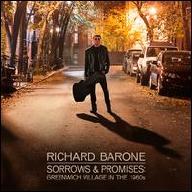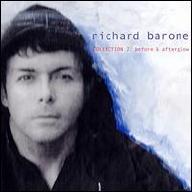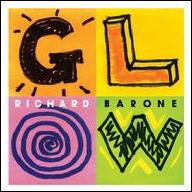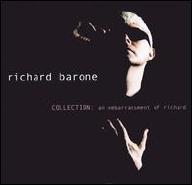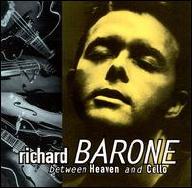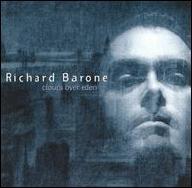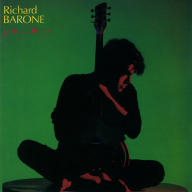Barone formed the Bongos in 1980 and led the group through three albums, the singles compilation Drums Along the Hudson (1982), the EP Numbers with Wings (1983) -- which featured the title track, the group's definitive song -- and Beat Hotel (1985). In 1983, Barone and James Mastro recorded a subdued, mostly acoustic duo album produced by Mitch Easter, 1983's Nuts Bolts. Mastro joined the band the same year following its signing to RCA.
After the Bongos parted amicably, Barone started his solo career in a peculiar fashion. Performing at The Bottom Line in New York City in 1987, Barone re-introduced himself in a musical lineup that prefigured the chamber pop mini-movement of a decade later, surrounding his voice and electric guitar with an acoustic guitarist, a cellist (Tiny Lights' Jane Scarpantoni, who would establish herself as the leading cello player in alternative pop), and a percussionist specializing in vibes and Latin instruments rarely heard in other contexts. The resulting live album, Cool Blue Halo, is a brilliant combination of Bongos tunes, new material, and impressive Bowie, T. Rex, and Beatles covers that perfectly illustrates Barone's range and tastes. It remains his best work.
Both Cool Blue Halo and 1990's Primal Dream were hampered by label woes. In both cases, the labels went belly-up not long after the discs came out, making them difficult to find. Barone quickly followed the latter release with Primal Cuts, a German EP featuring remixed tracks, acoustic demos, and new recordings of Primal Dream's best songs.
Barone then took a three-year break before re-emerging with the brilliant Clouds Over Eden in 1993. Dedicated to the memory of Barone's close friend, music journalist Nicholas Schaffner (who wrote The Beatles Forever, The British Invasion, and A Saucerful of Secrets: The Pink Floyd Odyssey, as well as the liner notes for both Cool Blue Halo and Primal Dream), Clouds Over Eden is a dark but ultimately redemptive song cycle of grief and acceptance, considerably more powerful and personal than Lou Reed's similar Magic and Loss from the year before; musically, it expands and refines the direction suggested by Cool Blue Halo.
For a follow-up, Barone basically recorded Cool Blue Halo, Pt. 2. Replacing the acoustic guitar and percussion with a second cellist, the sound on 1997's Between Heaven and Cello is even more delicate and dark-hued than on Cool Blue Halo, but it suits the song selection, heavy on the two previous albums but with a few oldies and new songs, very well indeed.
For the next several years, Barone focused on writing, co-writing, collaborating, musical and theatrical direction, and producing other artists. In addition, he turned to the Loser's Lounge, a collective of New York-based art-pop scenesters who put on tribute concerts in local clubs. Besides playing and singing in the majority of Loser's Lounge concerts, Barone also produced their first two albums, 1999's Simply Mad, Mad, Mad, Mad About the Loser's Lounge and 2001's How Can a Loser Ever Win?
In 2000, Barone's German label Line Records reissued Cool Blue Halo, Primal Dream, and Clouds Over Eden in a three-disc box set called The Big Three. In 2004, he compiled a solo anthology, Collection: An Embarrassment of Richard. Since that time, Barone was the executive producer of The Nomi Song, a film on Klaus Nomi (Barone remixed Nomi's Total Eclipse as well). He was involved in a wide range of activities, including music direction and orchestration for Bright Lights, Big City at the New York Theatre Workshop. He directed and performed in a modern interpretation of Handel's Baroque masterpieces, entitled The Downtown Messiah, broadcast for six years on public radio, and continued his focus on major events in such venues as Carnegie Hall, The Hollywood Bowl, and New York's Central Park. His first book, Frontman: Surviving the Rock Star Myth, was published in 2007. Glow, his first proper solo album in several years, was co-produced by Tony Visconti (T. Rex, David Bowie) and released in 2010. ~ Stewart Mason, Rovi


